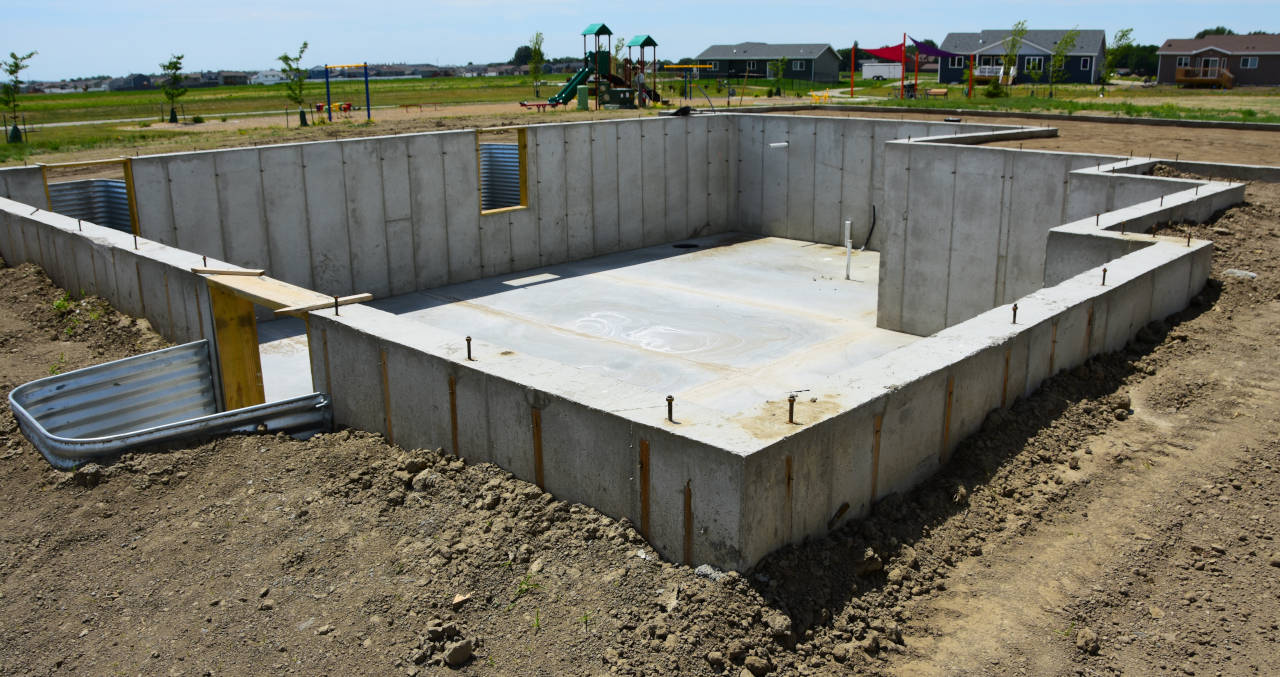Cost to Install a Foundation – 2025 Price Guide
The foundation is the most important part of a construction project as it provides a stable base to build upon. The price to install one varies, with things like size, type of foundation, and location all impacting the final cost. Read below to learn more about the cost of installing a new foundation.
2025 Concrete Foundation Costs
Calculate local project costs by entering your zip code.
Custom Location
| National Average Price | $10,000 |
| Typical Price Range | $5,000 - $40,000 |
| Minimum Price | $2,000 |
| Maximum Price | $60,000 |
Get free estimates from contractors near you.
On this page:
How Much Does a Foundation Cost?
The average cost of a foundation is $10,000, with a total range from $5,000 for a small home to more than $40,000 for a new basement foundation for a large home. Consider which type of foundation you need to install to narrow in on the price.
Are you putting a foundation under an existing building? That will require the additional expense of raising the house to put in a new foundation. Replacing a damaged foundation? Are you building a foundation for a new home or putting on an addition?

Whatever the objective for your foundation, you can spend thousands before you ever pour the concrete or put together concrete blocks to form a wall. Much of that expense will depend on how much excavation, tree removal, and leveling will need to be done.
Poured Foundation vs. Concrete Block
The type of foundation installed will have an impact on the price. A poured foundation can be installed much faster than block foundations. This is advantageous in areas where labor rates are high, and the cost of concrete is low.
However, in some areas where the cost of labor is low and the distance needed to deliver ready mix is far, then a block foundation might be less expensive.
The amount of concrete needed will also be a factor for a poured foundation. Concrete costs an average of $137 per cubic yard, but that varies by location and vendor.[1]
Types of Foundations
A foundation could be as simple as a concrete slab or as complex as a full basement. The more familiar you are with how foundations get constructed, the better. You’ll want to understand which types are best suited for your area’s soil, climate, and flood conditions. Of course, your budget could very well affect which foundation you choose as well.
Of course, everything depends not only on the type of foundation, but there are other considerations such as preparation, leveling, labor, etc. You must also add in rebar or wire mesh, sealing, draining, humidifying, insulation, and other necessities.
Concrete Slab
Most monolithic concrete slabs are four inches thick, poured into a form with or without rebar or wire mesh, and often placed over packed gravel. These are primarily used in areas with moderate climates, though some use these for garages, sheds, and barns, so there is less concern with frost and thaws heaving the soil.
The next step up from a concrete slab is a stem wall. This foundation’s construction is similar to a crawl space. Thick forms get placed on top of footings where the outer walls will be, with anchor bolts set into the form. The concrete gets poured into the forms, and when the forms get removed, the sill plates are attached to the anchor bolts.
We have an abundance of information about calculating concrete slabs by the foot, yard, or even by the bag. Always round up to the next yard or add 10 percent overage to account for things like spillage, voids, and waste.
The monopour concrete slab is usually the least expensive, depending on size and how much you can do yourself. Figure $5-8 per square foot.
Stem walls are about $45-55 per linear foot. This is in addition to the overall square foot cost of the monolithic slab foundation. Total costs are based on how thick the slab needs to be; Alaskan slabs will be more costly than simple 4″ slabs.
Crawl Space
Homeowners use a crawl space as a less expensive foundation to get the house off the ground and to protect it from flooding. Crawl spaces require vapor barriers, insulation, and possibly a dehumidifier to avoid mold growth. These are usually 18 inches above the ground but could be as much as three or four feet, depending on the flood danger and other necessities.
Crawl spaces average about $6 to $18 per square foot. However, insulation will add another $1-3 per square foot, but a vapor barrier is much cheaper at less than a dollar. You could install a dehumidifier cheaper, but you will pay for the electricity to run it.
Piers and Beams
Pier and beam foundations are very similar to a crawl space foundation. However, these usually get used in rocky or ledged areas where you might not be able to dig footings around the entire building, or when there is a chance of soil shifting. You can use drilled piers or spread footings, and then stretch beams across the expanse. These can also get added to repair damaged foundations.
These run about $7 to $11 per square foot, and you can use the same figures for insulation, dehumidifier, and vapor barriers.
Full Basement
A full basement is, of course, the most expensive option for a foundation. However, there are many benefits. These can be fully finished or unfinished. They can be used for storage or even contain a garage. Some homeowners add a full basement or finish an existing basement as a method of adding living space, a mother-in-law suite, or a rental.
A full basement has many variables. A new basement will require excavation down to eight feet. It can cost anywhere from $30 to $100 per square foot, including excavation, and most spend $15,000 – $60,000 unfinished,[2] once again, depending on the size. For a finished basement, costs will be an additional $7 to $25 per square foot in addition to the initial pouring costs.
The price will go up when you need a separate entrance. A finished basement will also require a quality drainage system, waterproofing, and sealing the concrete, which is a good idea anyway.
Footings
Footings serve as the base of the foundation and provide support for the structure. Learn more about the cost of footings that are necessary for the foundation.
Get a Minimum of Three Estimates
The strength and durability of your house or project depends primarily on the foundation. Use our calculators to help you develop a plan, so you will know what a reasonable estimate is. Just don’t make your plan so “concrete” that you won’t change it when contractors present a valid reason. You should also consider getting multiple estimates from licensed contractors before you start the project – most suggest at least three estimates are a good idea.
All pricing information on this page is based on average industry costs, and is subject to variance for project-specific materials, labor rates, and requirements.
References
- Concrete Network, Concrete Price Considerations - Cost of Concrete, https://www.concretenetwork.com/concrete-prices.html
- Evan Gillespie, Costs of Building a Foundation, Weekand, https://www.weekand.com/home-garden/article/costs-building-foundation-18013422.php


